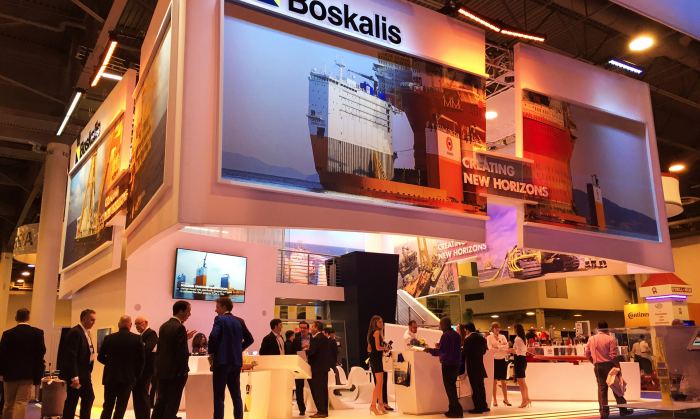The annual Boskalis Beach Cleanup Tour launched in 2013 involves ridding the entire Dutch coastline of marine litter in just a few weeks, while at the same time raising awareness about plastic soup.
Founder of the Beach Cleanup Tour, Merijn Hougee, and the North Sea Foundation Director Floris van Hest explain how the success of the campaign is being used to inspire further initiatives, which will lead to clean, healthy and sustainable seas.
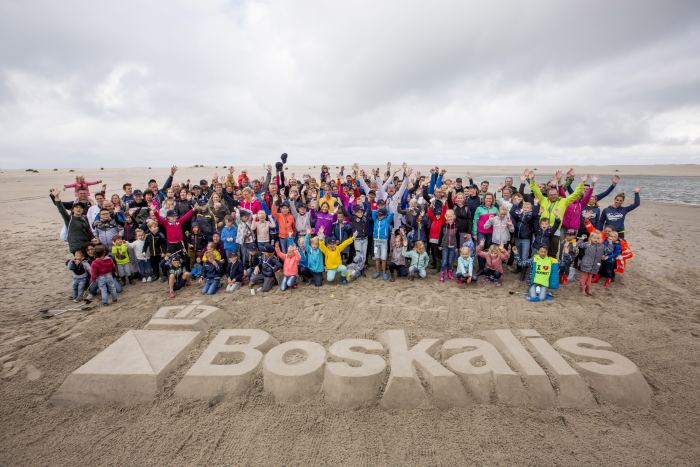
Boskalis family day 2017
Five years ago the Boskalis Beach Cleanup Tour was launched, could you tell the readers about this green initiative and how it came about?
Merijn: “I have been addressing the issue of marine litter for at least a decade. I was working on a beach garbage monitoring project where we cleaned and studied four different sites along the Dutch coast and I suddenly thought, ‘why can’t we clean up the whole Dutch coastline?’ Fortunately I knew Boskalis having worked with the company on a greener ship recycling initiative, so got in touch to see if they were willing to help.”
“Nowadays, in just 15 days we clean the entire Dutch coastline! Our groups of volunteers work from the north by the Dutch Wadden Sea islands and the south by Zeeland and they meet in the middle.”
But the Boskalis Beach Cleanup Tour represents much more than cleaning the entire coastline?
Merijn: “Of course, one of the main aims of the campaign is to physically clean the beaches but crucially, we also want to use the Tour’s findings to tackle the source of marine litter. Our target is that it doesn’t get into the sea and onto the beaches in the first place. The event also provides an invaluable source of additional data. The North Sea Foundation (Stichting De Noordzee) has studied the amount of waste on beaches since 2002, so we can analyze the pollution and see what the main items are that contribute to this problem.”
How much garbage are the volunteers collecting?
Floris: “During the 2017 edition, the team gathered a staggering 15,000 kilograms of waste, which was down from 20,000 kilograms in 2016.”
“However, although this is an impressive figure and the Boskalis Beach Cleanup Tour is incredibly successful, we are not necessarily seeing any structural downturn in the amount of garbage over the past decade. Hence, the reason we are taking the campaign to the next stage.”
You mention that the Boskalis Beach Cleanup Tour has been very successful, has it managed to raise public awareness about the global Plastic Soup issue?
Merijn: “Absolutely, beyond all our expectations. When I started we had 600 volunteers and we rented a campervan as our ‘operations hub’ with just two people from the North Sea Foundation on board. We did a lot of radio interviews and social media campaigns and the year after numbers doubled. This culminated in 2017, when we had an incredible 2,748 volunteers, with people coming from the whole country and all walks of life.”
“Boskalis also has its own very successful family day with around 200 people participating in one of the stages, as well as the Young Boskalis Day.”
During the 2017 edition, the team gathered a staggering 15,000 kilograms of waste
“The whole event is much more professional and certainly I think most people know about the plastic soup issue now compared to five years ago. We get a huge amount of media coverage and importantly, we are gaining more political support. For instance, this year several mayors joined in from different regions and the chairman of the largest political party in the Netherlands too with his family. All this gives us a much stronger voice when do our lobbying work.”
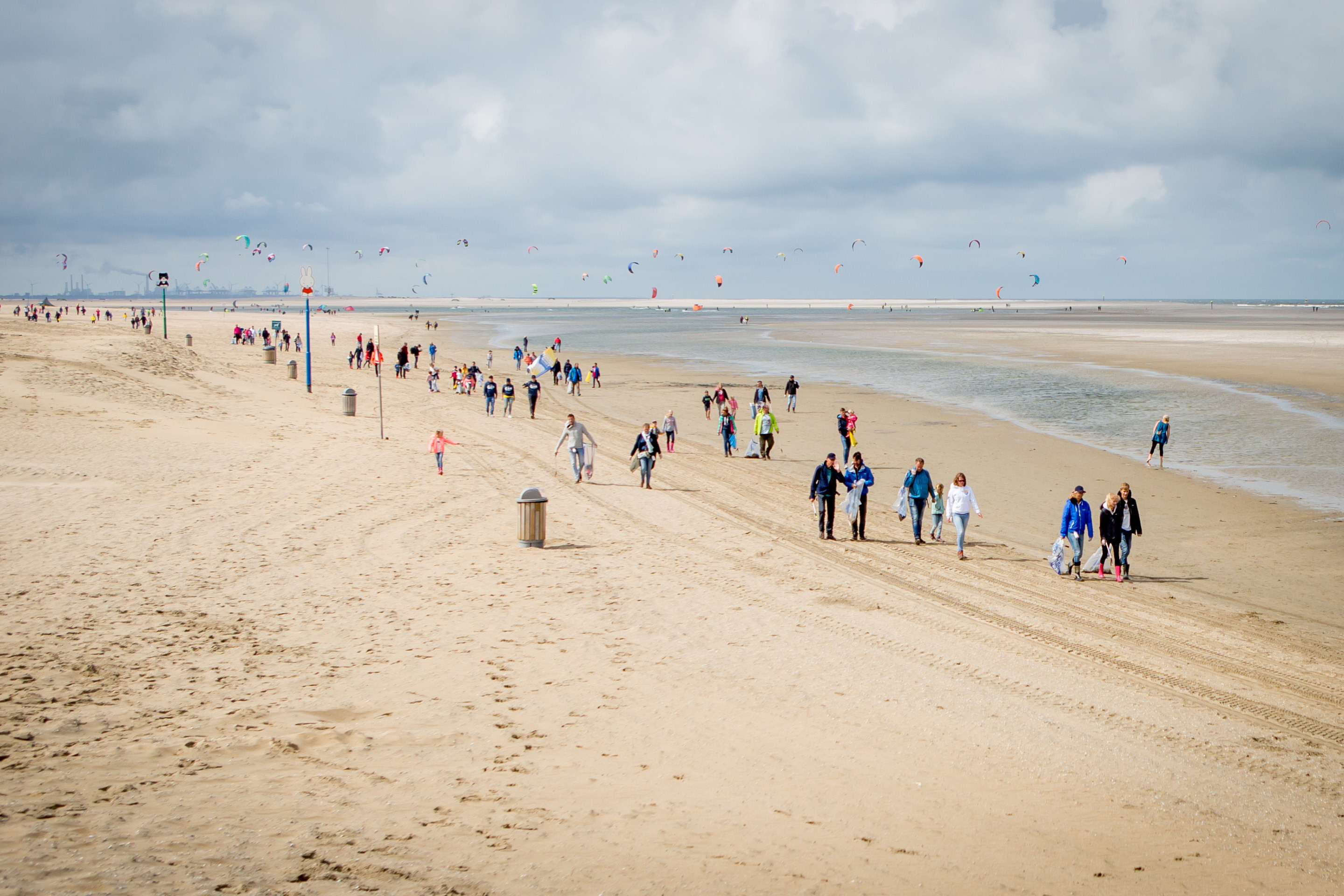
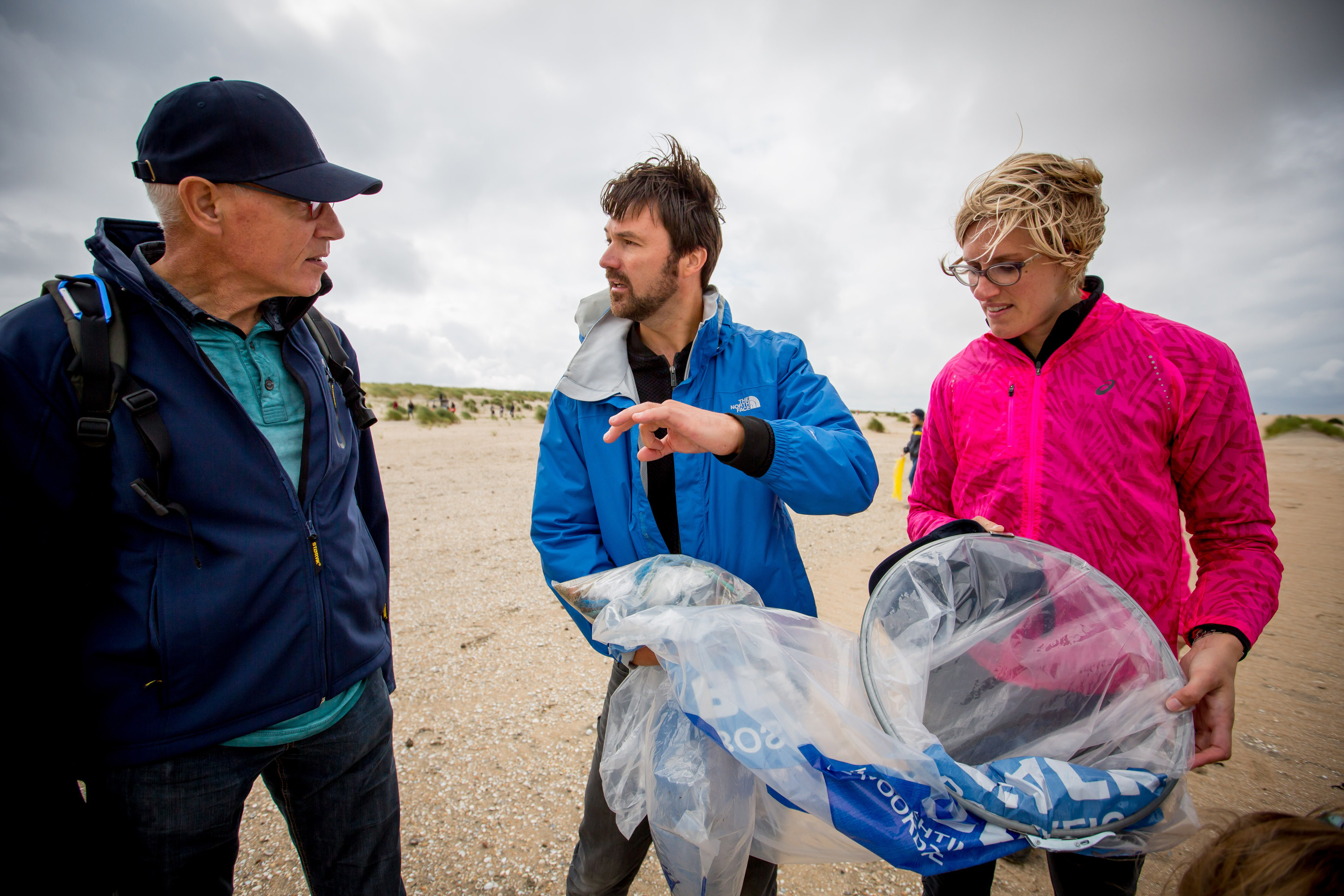
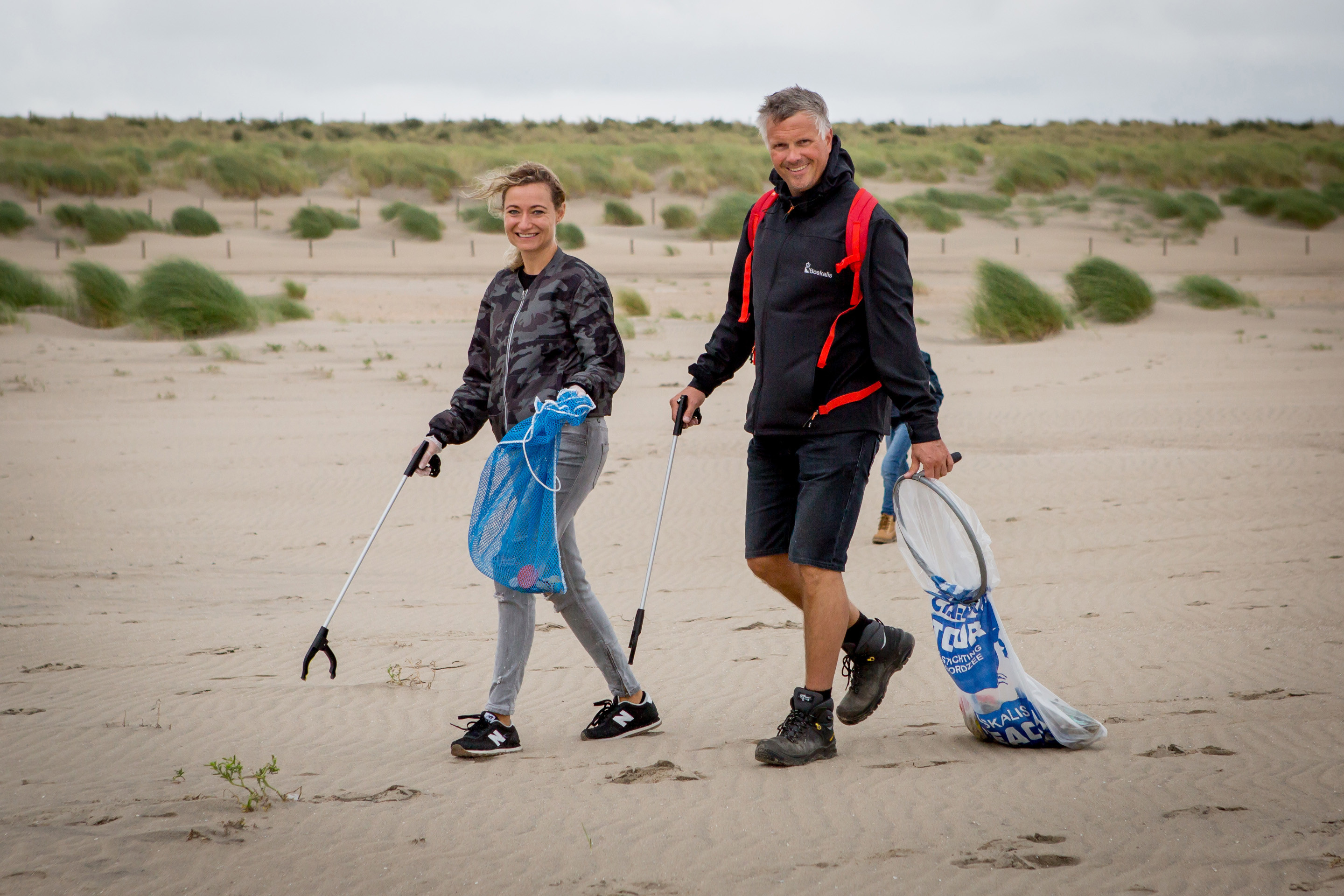
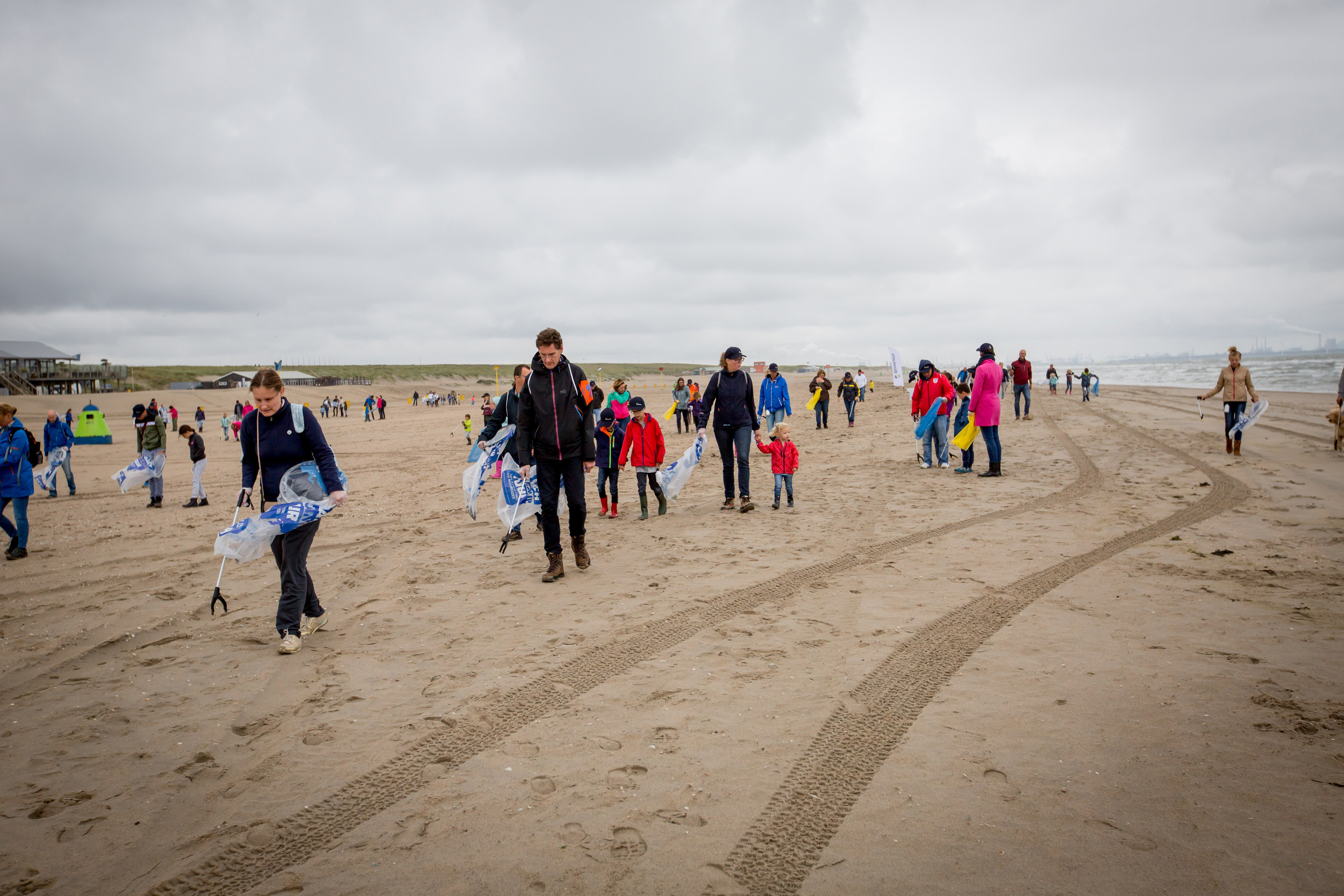
The North Sea Foundation has a substantial dataset built up from its beach waste monitoring research, could you tell us what it reveals? What are the main polluters actually?
Floris: “Essentially we collect around 380 pieces of garbage per 100 meters of beach and of these 130 are nets and ropes, which is by far the biggest offender. The top 5 items are dolly ropes/nets, small plastic pieces, bottle caps, sweet and snack packaging material and the remains of balloons.”
“In global studies 80% of marine litter comes from land-based sources, but in the North Sea more than 50% comes from sources at sea, fishing and shipping. The five main items that we have identified account for more than half of all the garbage on the beach.”
“So now we know the exact make-up of the trash, we are targeting the top 5 and addressing them each individually with specific campaigns. This has contributed to a number of so-called ‘green deals’ for clean beaches, fisheries, shipping etc.”
The Boskalis Beach Cleanup Campaign is now an identifiable ‘brand’ in the Netherlands and has truly exceeded expectations
Could you outline some of the specific campaigns?
Floris: “For example, we have been working with the fishing community and with industry to try and find an alternative to dolly ropes, which the fishermen use to protect their nets. And after many years of research it is looking likely that a viable alternative is on the horizon.”
“In another example, after discovering the amount of paraffin wax on the beaches (found in 64% of our monitoring activities) we are working with shipowners, ports and the government to address this. Paraffin wax residues are discharged at sea when vessels flush out their cargo tanks when they pick up a new cargo. Vessels are allowed to do this 12 miles offshore but this results in the paraffin wax landing on our beaches and polluting the seas.”
“The Foundation is writing a report based on the Boskalis Beach Cleanup Tour findings and the Dutch government is now calling for a ban on this practice in the Netherlands and ideally we would hope this ban could be widened to the North Sea. The government will also be putting it forward to the International Maritime Organization (IMO). This is a real success story. The paraffin has been identified as a major issue through the Tour and now the government has picked it up and is taking it a step further. The Port of Rotterdam has also suggested a ‘paraffin control area’ similar to the Sulfur Emission Control Areas.”
“On a smaller scale, we have talked to ships’ suppliers and a pilot is taking place where packaging from any food and stores is taken back off the vessel and disposed of properly.”
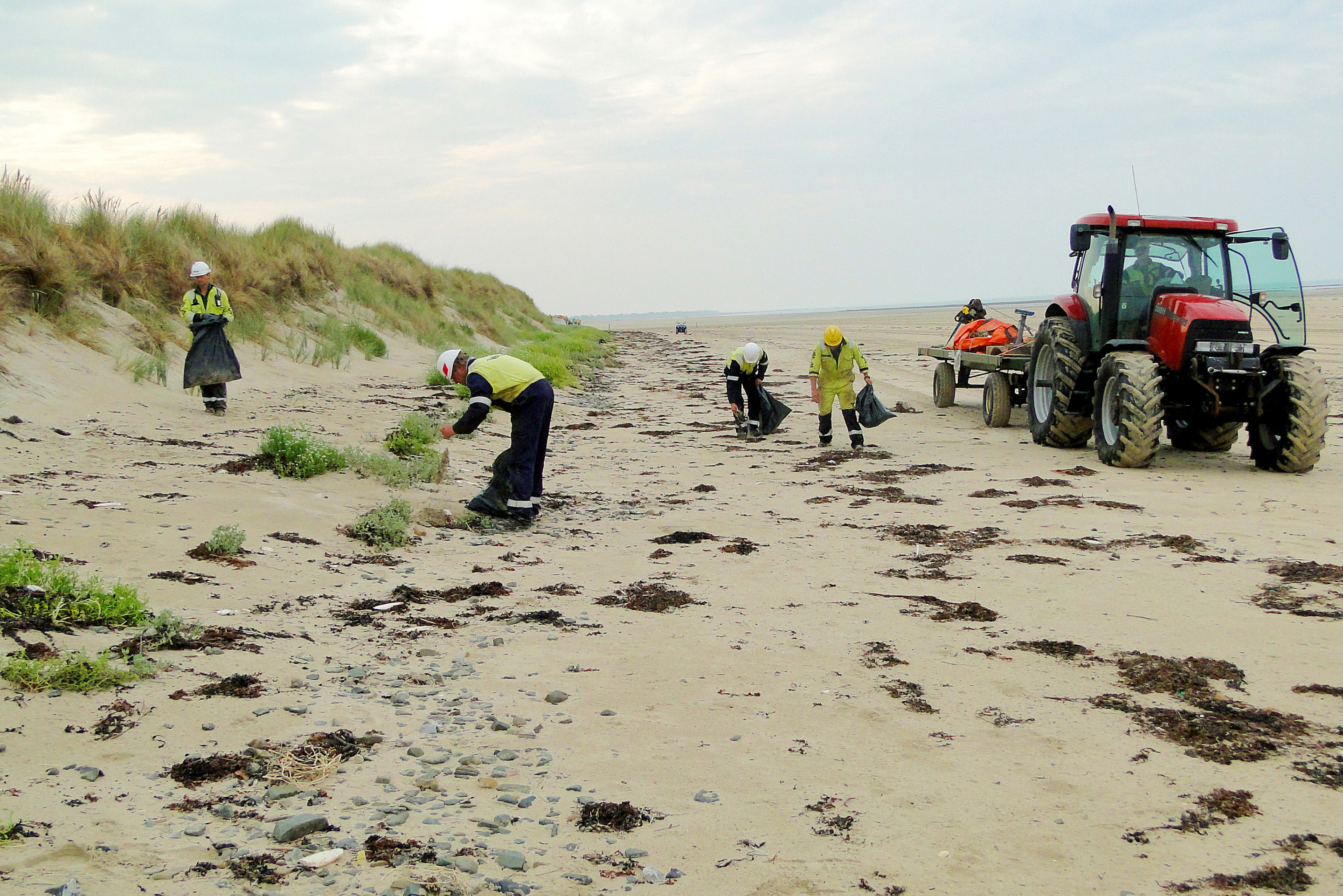
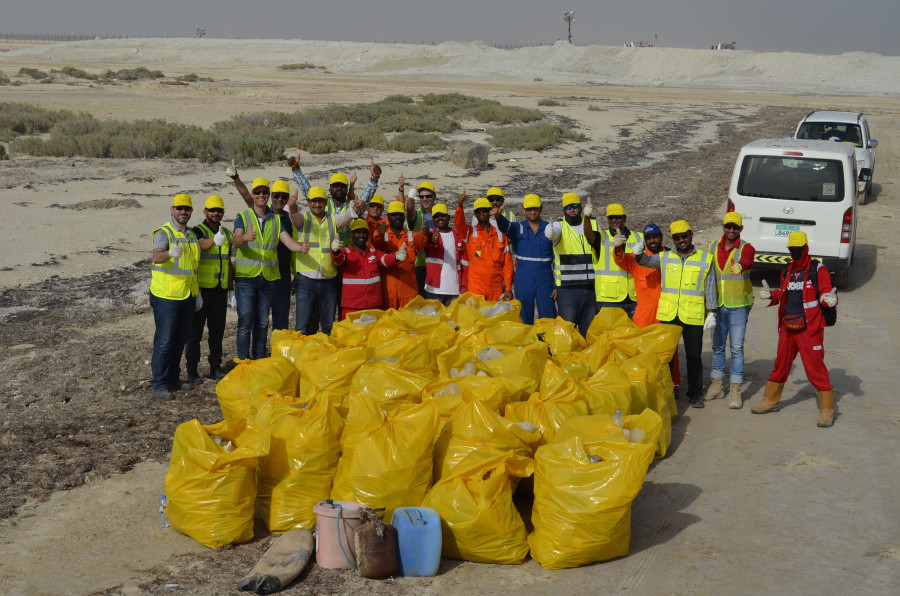
The bottle top nuisance is also being targeted by the Foundation, which has even published the first ever Bottle Cap Report?
Floris: “Yes, more than 10,000 bottle tops were found on the beach in 2016. More than 80% came from consumer drinks and food packaging. Again we are taking the findings from the Tour a step further. Perhaps there could be a rebate system in place for these smaller plastic bottles or we can make packaging that doesn’t leak, or a bottle cap could be attached to the bottle…We want to work with the industry to spark innovation. AAfter the 2017 report is published a series of meetings will take place with the packaging industry. All these initiatives create momentum. Together, we can make a breakthrough and start on the path to change.”
We now want to see the amount of plastic pollution decreasing structurally, year on year. I would like to think that in 10 years, the problem with the top 5 polluters will have been solved
What difference do you think the Tour has made overall?
Floris: “Essentially, the Boskalis Beach Cleanup Tour creates awareness, and it then provides us with good data which we can focus on – we can get the facts on the table. Everyone now knows about the problem and no one wants plastic in the sea.”
“Then we can attach its success to the top 5 litter items and tackle each source of waste separately. We now want to see the amount of plastic pollution decreasing structurally, year on year. I would like to think that in 10 years, the problem with the top 5 polluters will have been solved.”
“And ideally, we can see this initiative being inspirational right across countries surrounding the North Sea!”
Merijn: “We need leaders that take the additional step towards sustainability. Boskalis has invested in the Cleanup Tour and its own family day. This also helps embed sustainability into the DNA of the company. We really didn’t know what to expect in the beginning and look where the event is now! The Boskalis Beach Cleanup Campaign is now an identifiable ‘brand’ in the Netherlands and has truly exceeded expectations.”
